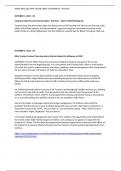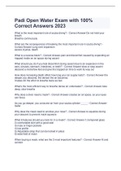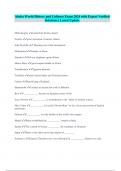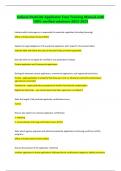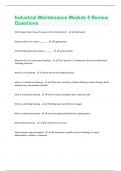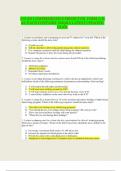Other
A level - Edexcel Government and Politics - News articles and key examples for essays
- Institution
- PEARSON (PEARSON)
A level - Edexcel Government and Politics - Examples for essays A collection of various examples and news articles that can be used in essays, compiled from . With these recent and relevant examples, increase your grades to an A/A* level of writing. Use these examples incorporated into essays, ...
[Show more]
